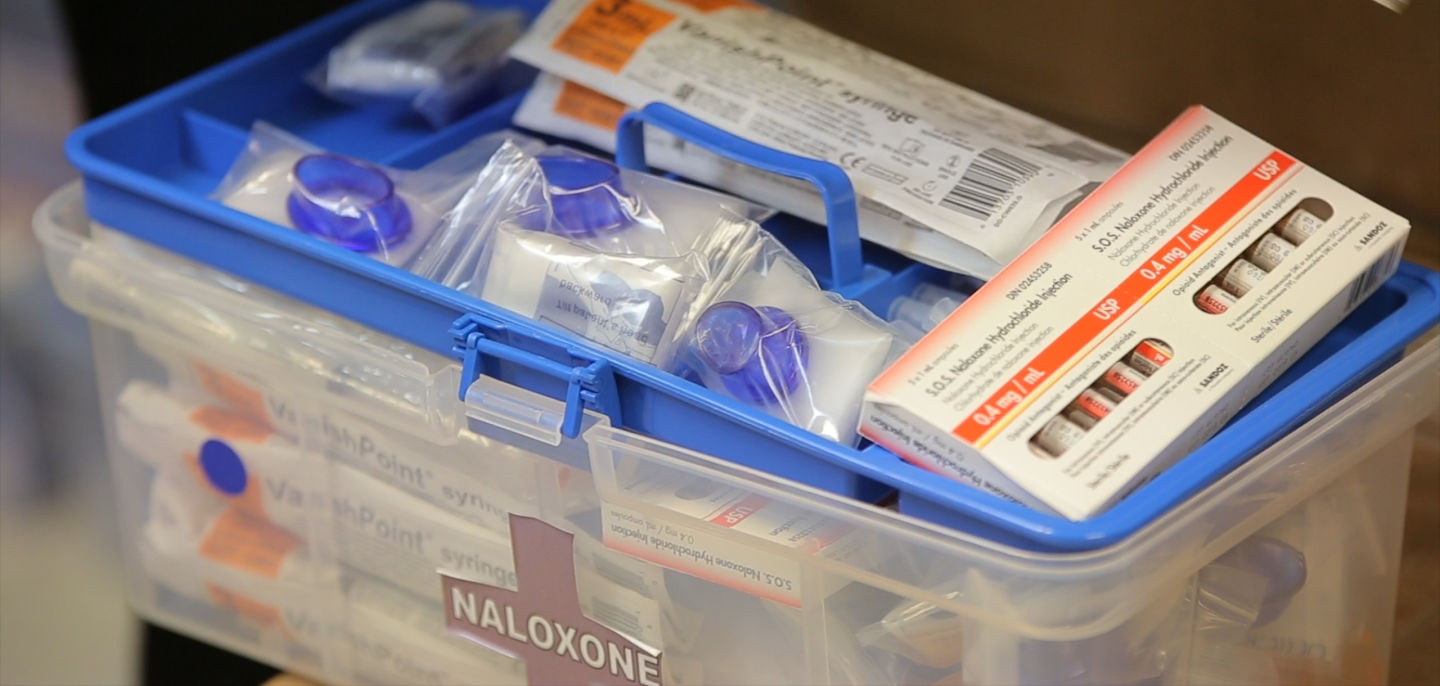Wide distribution of opioid antidote kits can slash overdose deaths during epidemics
April 18, 2018

April 18, 2018

British Columbia’s Take Home Naloxone program significantly reduced the number of fentanyl-related overdose deaths in 2016, according to new research from the BC Centre for Disease Control and University of British Columbia.
The study, published in the Lancet Public Health, used a new mathematical model to estimate the effectiveness of different public-health interventions in preventing opioid overdose deaths.
The first use of the model examined the impact of the expansion of the Take-Home Naloxone program by quantifying the number of overdose-related deaths in BC that were averted with use of the kits. Key findings include the following:
"It’s very encouraging to see that our coordinated efforts to expand access to Take-Home Naloxone kits have proven to save so many people from overdose during this crisis," said Judy Darcy, Minister of Mental Health and Addictions.
"Since this study was completed, we have expanded access to naloxone even further, increasing to 80 per cent of community pharmacies, hundreds of other locations, front line workers and families across BC."
The model developed by the BCCDC and UBC uses multiple data sources including THN data, provincial data for overdose and fentanyl-related deaths, ambulance attended overdoses and estimates of the number of people who use illicit drugs in BC.
"We’re now expanding the scope of the project for the next phase of this research," said Mike Irvine, a postdoctoral fellow in mathematics at the UBC Institute of Applied Mathematics and BCCDC. "We plan to incorporate data from other sources including overdose prevention sites and opioid agonist therapy programs, as well as to examine the impact of more potent fentanyl analogues such as carfentanil."
"Clearly, fast and wide distribution of naloxone is key," said Mark Gilbert, a BCCDC medical director who oversees the program. "We hope other jurisdictions in Canada and the world will take note and use our experience to make their own harm reduction programs as effective as possible."
Naloxone is a medication that quickly reverses the effects of an overdose from opioids such as heroin, methadone, fentanyl and morphine. It is available in BC without a prescription and often given as an injection into a muscle.
This study supports the work of the Ministry of Mental Health and Addictions to combat the overdose crisis and save lives. The ministry is working with multiple partners on a wide range of actions spearheaded by the new Overdose Emergency Response Centre and Regional Response and Community Action Teams in communities hardest hit by the overdose crisis. These teams are working hard to quickly intervene to save lives and to put services in place to better support people on a path to treatment and recovery.
The BC Centre for Disease Control, an agency of the Provincial Health Services Authority, provides public health leadership through surveillance, detection, treatment, prevention and consultation services. The centre provides diagnostic and treatment services for people with diseases of public health importance, and analytical and policy support to all levels of government and health authorities. The BCCDC also provides health promotion and prevention services to reduce the burden of chronic disease and preventable injury.
Ben Hadaway
BCCDC Communications
604.707.2412
778. 867.7472
Ben.Hadaway@phsa.ca
We honour xwməθkwəy̓ əm (Musqueam) on whose ancestral, unceded territory UBC Vancouver is situated. UBC Science is committed to building meaningful relationships with Indigenous peoples so we can advance Reconciliation and ensure traditional ways of knowing enrich our teaching and research.
Learn more: Musqueam First Nation